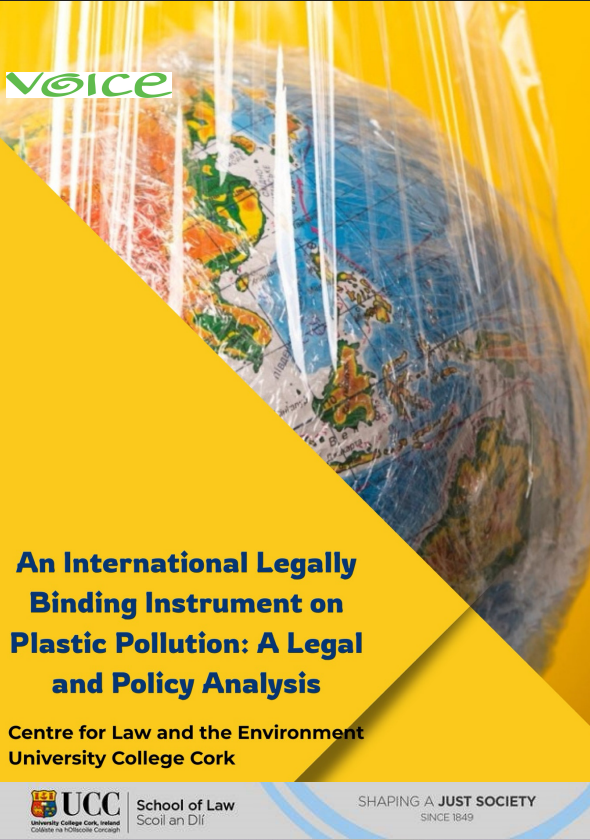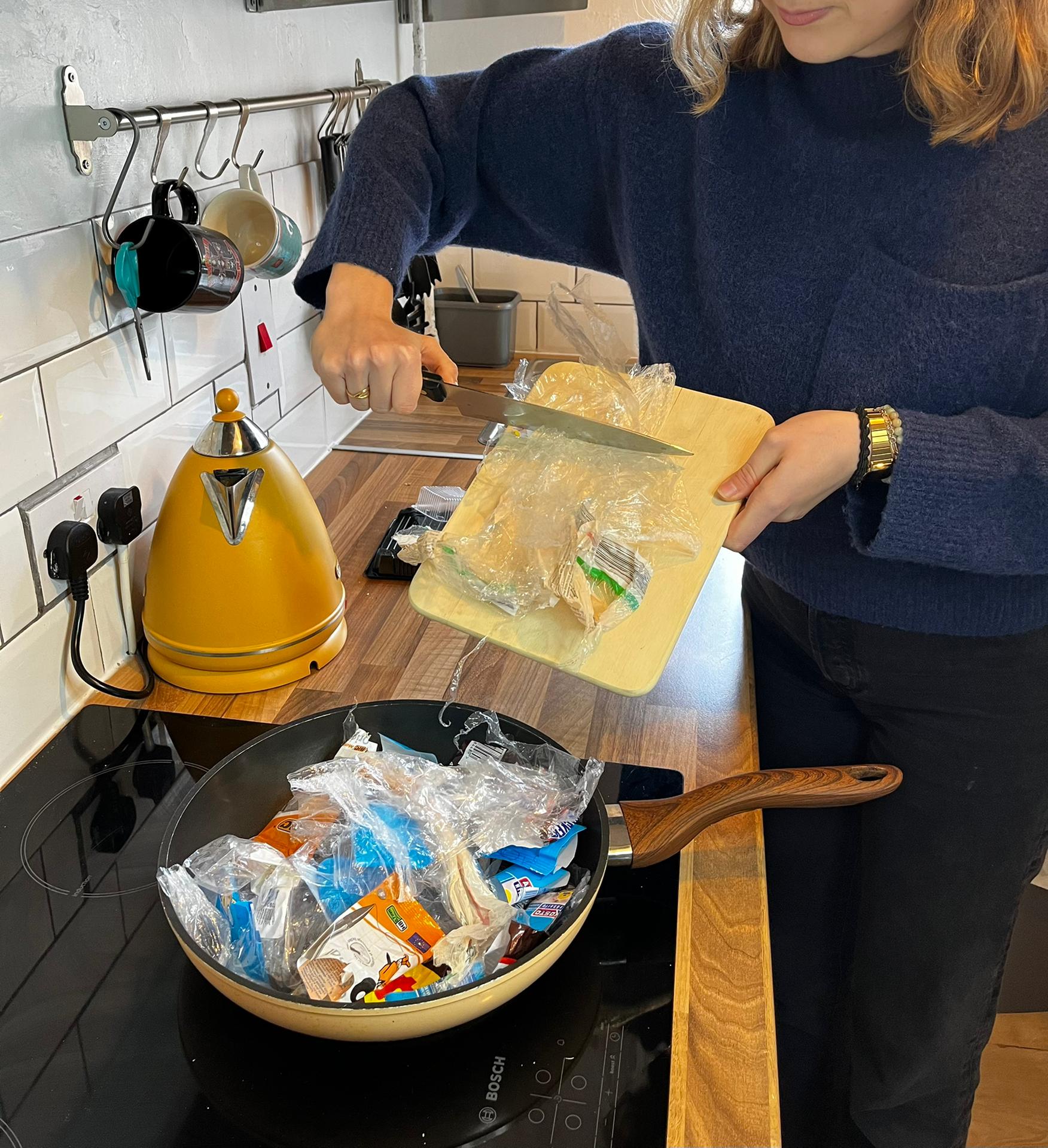Plastic Reduction Must Start at the Source
Why the Global Plastics Treaty Must Address Plastic Production – Not Just Waste
By VOICE Ireland
“When the tap is leaking, the first thing you do is turn it off, not mop the floor forever.” Tad Kirakowski CEO of VOICE
As negotiations continue on the Global Plastics Treaty, we at VOICE are calling for the treaty to include clear and legally binding measures to reduce plastic production. This is the first and most fundamental demand we make, because we cannot meaningfully address the plastic crisis without turning off the tap at its source.
Plastics are made to last. Once produced, they persist in the environment, degrade into microplastics, pollute ecosystems, and harm human health, often for generations. The evidence is clear: we need to reduce the flow of plastics into the world, not just manage the waste they create.

Where the Treaty Stands: The Power (and Politics) of Article 1 and Article 6
Our report on the ILBI negotiations, written by Environmental Law students at University College Cork, gives deep insight into how the treaty has developed and where it still falls short. Two critical articles stand out in the text:
Article 1 :: The Objective
At the heart of any treaty lies its objective. The report (see Chapter 2) shows that this has shifted considerably across negotiation sessions (INC-1 to INC-5). Early drafts committed to “ending plastic pollution”, but more recent versions soften the language, now aiming to “protect human health and the environment from plastic pollution.”
This shift matters. As our report highlights, the treaty’s objective sets the tone and limits for everything that follows. A weak or vague objective risks narrowing the scope of the treaty to downstream issues like waste collection, ignoring production and design.
To be effective, Article 1 must clearly reflect a full life-cycle approach, covering not just waste, but plastic production, use, trade, and pollution. Earlier drafts from INC-1 and INC-2 supported this comprehensive vision, but mounting pressure from petrochemical-producing countries has steadily eroded it.
“We need a treaty that covers upstream and downstream solutions,” our report argues
Article 6 :: The Beating Heart: Supply & Sustainable Production
If Article 1 sets the destination, Article 6 is the engine that gets us there. This article is intended to deal directly with plastic supply, including primary plastic production. The wording has been fiercely contested, shifting between “Supply” and “Sustainable Production,” and its strength (or weakness) will largely determine the treaty’s ambition.
Our report emphasises that Article 6 is central to shaping all other parts of the treaty: from chemical safety and product design to waste management and human rights. Without a strong Article 6, the treaty risks being reactive instead of transformative.
In Busan (INC-5), over 100 countries, including Ireland, backed proposals for a dedicated provision to control and eventually reduce plastic production. These proposals called for:
- Global reduction targets.
- Mandatory reporting of production, imports, and exports.
- Regular revisions of the targets by the treaty’s governing body (COP).
This is the kind of leadership we need Ireland to continue supporting vocally and visibly.
Why Production Reduction Matters, For People, Planet, and Climate
This report supports VOICEs call for: reduction in virgin plastic production is essential to solving the plastic crisis. Current global production is on track to triple by 2060 if no intervention occurs; overwhelming waste systems, harming vulnerable communities, and fueling climate change.
🌍 Plastic production is a major climate issue. At current trends, it could consume up to one-third of the remaining carbon budget for keeping global heating below 1.5°C, outpacing even emissions from aviation or shipping.
Reducing production is also an economic opportunity. Overcapacity in plastic manufacturing is already squeezing profit margins. By phasing down virgin plastic production, we can support circular alternatives, create sustainable jobs, and relieve pressure on already overwhelmed waste systems.
The Politics: Who Supports and Who Opposes?
Our report shines a light on the geopolitics of the treaty. Ireland, as part of the High Ambition Coalition, is aligned with countries pushing for strong upstream measures. In contrast, powerful fossil fuel producers, including Russia and Saudi Arabia, with heavy backing from petrochemical lobbies, are working to water down the treaty.
Industry influence is not subtle. As the report notes, the number of fossil fuel and chemical industry lobbyists grew by 37% between INC-3 and INC-4, with 196 registered lobbyists attending Ottawa. These actors consistently push to limit the treaty to waste management, keeping production growth unchecked.
This is a pivotal moment. Will the treaty serve people and the planet or polluters and profits?
How the Treaty Could Be Stronger, Based on the Report
The ILBI report provides clear recommendations to strengthen Article 1 and Article 6:
- Restore the clear objective of ending plastic pollution, not just “managing it.”
- Embed a life-cycle approach in the treaty objective (Article 1), and ensure it's not sidelined as a placeholder.
- Establish binding production reduction targets in Article 6, with transparent reporting and COP-led oversight.
- Ensure Article 6 supports other global treaties, such as the Paris Agreement, the Basel Convention, and marine protection laws, which are all undermined by runaway plastic production (see Chapter 7).
What’s Next and What We’re Asking Ireland to Do
In the lead-up to the final rounds of negotiations, VOICE wrote to the Irish government and urged them to:
- Push for a strong, clear, and enforceable Article 6.
- Champion binding global reduction targets on plastic production.
- Advocate for a treaty that prioritises health, human rights, and the climate, not just economic interests.
You can read our letter to government here. We cannot afford to wait. Without action on production, all other treaty mechanisms, recycling, cleanup, or design standards, will simply not be enough.
Let’s stop the problem at the source. Let’s turn off the tap.
Next in our series: We’ll explore how the treaty can address chemicals in plastics.
For more detail, we encourage you to read our full ILBI report [link], and follow our updates as we push for a treaty that delivers real change.



